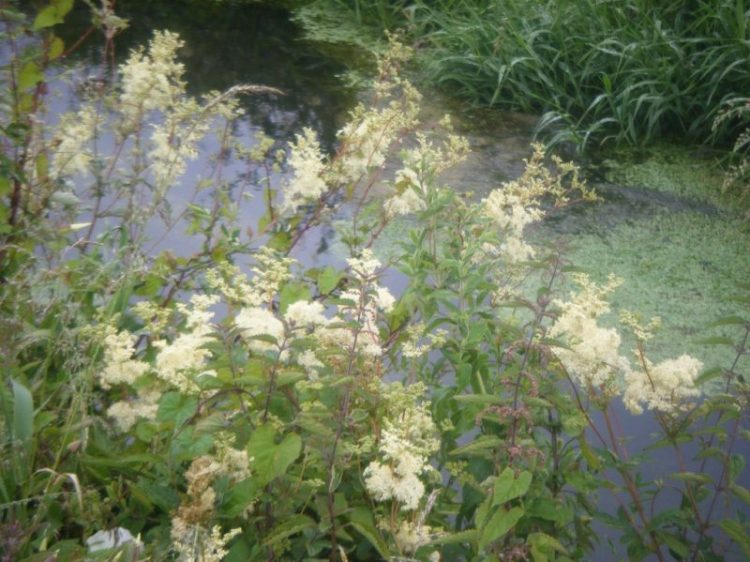Local Herbs – Filipendula ulmaria


As a Medical Herbalist I make it my business to know who grows where and I love to share the knowledge so that you may see the herbs growing in their natural habitat.
If you wish to see this abundance of Meadowsweet then walk along the track in the middle of the wheat field between Goring and Ferring, it literally runs alongside the A259.
There is a small river right in the middle, you have to scramble a bit through long grass to get to the bank for a proper look but you can clearly see her fluffy flowers gracing the bank most of the way along.
My photographs are not that close as I had to scramble with my 3 year old and my dog in tow!
I do not recommend harvesting the herb from here as I know the field is sprayed with pesticides and I am not sure if the meadowsweet would be contaminated – sadly.
So, how does this herb assist us?
Did you know that this herb contains a high level of sailcylic acid and the botanical name used to be Spiraea ulmaria, the drug aspirin was first synthesised from this plant – hence the name aspirin from spiraea.
Unlike Aspirin, this herb will not cause stomach ulcers, in fact it has a traditional use of being used to heal stomach ulcers!
A great example of what can happen when a part of a plant is extracted, rather than the whole being used in its natural state….
I use Filipendula often where stomach acid requires normalising, often showing as Acid Reflux. I might combine it with Calendula, Slippery elm and Comfrey leaf as a powder or as a Reflux Tea with Calendula and Comfrey leaf.
As an anti-inflammatory, Filipendula can be used in arthritis, it could be combined with other anti-inflammatories such as Wild Yam ( Dioscorea villosa) Apium ( celery seed) Harpagophytum ( devil’s claw)
It has a traditional use as a remedy for children’s diahorrea, due to its astringency and as an eyewash for conjunctivitis.
Due to the high level of Salicytes I would suggest that anyone with an allergy to aspirin should avoid this herb.
Apparently this herb was considered holy by the Druids, being used often in the brewing of sacred ales and meads.
Her country name is Queen of the Meadow and she is a member of the Rose family.. ( ahh ha, that explains why I love her so..)
My first encounter with this plant was in a lecture room where a bag of chopped herb was passed around the class for us to identify, I remember the smell although sweet like meadow hay, definately had an undertone of my mum’s medicine cabinet, not the yeasty B Vitamins.. must have been the aspirin..!




